HCQs 300 is used to treat rheumatoid arthritis, lupus, and certain autoimmune conditions. It contains Hydroxychloroquine, which helps reduce inflammation and control immune system activity.
HCQS 300mg Hydroxychloroquine Tablets
Rated 3.5 out of 5 based on 2 customer ratings
(2 customer reviews)
$55.00 – $135.00Price range: $55.00 through $135.00
| Pack Size | Price | Price / Unit | Quantity | |
|---|---|---|---|---|
| 100 Tablets | $55.00 | $0.55/ unit | ||
| 200 Tablets | $100.00 | $0.50/ unit | ||
| 300 Tablets | $135.00 | $0.45/ unit |
Looking for bulk / B2B pricing? | Send Inquiry |

| SKU | 11309 |
| Manufacturer | IPCA Laboratories Ltd |
| Categories | Antiparasitic |
| Delivery Time | 10 - 14 Working Days |
| Strength | 300mg |
Introduction to HCQS 300mg Tablets
HCQS 300mg Tablets are prescription medications primarily used in the management of autoimmune diseases and certain infections. They are commonly recommended for conditions such as rheumatoid arthritis, lupus erythematosus, and some forms of malaria. These tablets are known for their long-term benefits in managing chronic inflammatory and immune-related disorders.
Each tablet of HCQS 300mg contains hydroxychloroquine sulfate, a well-established compound in clinical practice. The dosage strength of 300mg makes it suitable for patients who need a moderate dose to maintain therapeutic levels in the bloodstream. It is often used as part of a long-term treatment plan under close medical supervision.
Physicians may prescribe HCQS 300mg when other treatments are not well-tolerated or ineffective. It helps reduce disease symptoms such as joint pain, skin rashes, and fatigue in autoimmune conditions. Due to its versatility, the tablet is considered a valuable option in the pharmacological arsenal for chronic disease management.
Uses of HCQS 300mg
HCQS 300mg (Hydroxychloroquine sulfate 300mg) is a medication with several important uses:
- Malaria (Prophylaxis and Treatment)
- Rheumatoid Arthritis (RA)
- Systemic Lupus Erythematosus (SLE)
- Discoid Lupus Erythematosus (DLE)
How Does HCQS 300 Works?
HCQS 300mg (Hydroxychloroquine Sulfate) works by modulating the activity of the immune system. It interferes with the communication between immune cells and helps reduce the production of substances that cause inflammation and tissue damage in autoimmune conditions like rheumatoid arthritis and lupus.
Additionally, it alters the acidic environment within certain cells, which helps in treating malaria by inhibiting the growth of the parasite.
Side Effects of HCQS 300mg
Common Side Effects
- Nausea and Vomiting
- Diarrhea
- Stomach Cramps
- Headache
- Skin Rash
- Dizziness
- Mood Changes
Serious Side Effects
- Severe Allergic Reactions
- Blood Disorders
- Muscle Weakness
- Hypoglycemia
- Nervous System Effects
- Psychiatric Effects
- Hearing Loss
Dosage of HCQS
How To Manage Side Effects?
Managing side effects of HCQS 300mg (Hydroxychloroquine sulfate 300mg) involves several strategies to minimize discomfort and ensure the safe use of the medication. If you experience any side effects, here are some general guidelines for managing them:
- Contact Your Healthcare Provider
- Follow Dosage Instructions
- Take with Food
- Stay Hydrated
- Eye Examinations
- Avoid Sun Exposure
- Take as Prescribed
- Monitor for Allergic Reactions
Warnings & Precautions
HCQS 300mg (Hydroxychloroquine sulfate 300mg) comes with several warnings and precautions to ensure safe and effective use. Here are some important warning and precautionary measures associated with HCQS:
1. Eye Health Monitoring:
- Long-term use of HCQS can affect the retina of the eye. Regular eye check-ups are essential to prevent vision problems or retinal damage.
2. Heart Conditions:
- This medicine may cause heart rhythm disturbances (QT prolongation), especially in people with existing heart issues or those taking other QT-prolonging drugs. Inform your doctor about any history of heart disease.
3. Liver and Kidney Function:
- HCQS should be used with caution in patients with liver or kidney impairment. Dose adjustments may be required.
4. Blood Sugar Monitoring:
- This tablet may lower blood sugar levels. Diabetic patients should monitor their blood glucose regularly to avoid hypoglycemia.
5. Pregnancy and Breastfeeding:
- Use during pregnancy or breastfeeding should only be considered if clearly needed and prescribed by a healthcare provider. Always consult your doctor first.
6. Gastrointestinal Distress:
- If you experience severe stomach upset, nausea, or vomiting, consult your doctor as dose adjustments or alternative therapies may be necessary.
Storage
- Keep HCQS tablets at a temperature between 20°C to 25°C (68°F to 77°F). Avoid exposure to extreme heat or cold.
- Store the tablets in a dry place. Do not keep them in the bathroom or any humid environment.
- Keep the medication in its original packaging and away from direct sunlight to preserve its effectiveness.
- Always store the tablets in a secure place to avoid accidental ingestion.
- Check the expiry date before use. Dispose of expired or unused medication safely, following local disposal regulations or returning them to a pharmacy.
Frequently Asked Questions
1. Is HCQS 300mg effective in treating viral infections like covid-19?
HCQS was explored as a treatment for COVID-19, but current research does not support its effectiveness, and it should not be used for viral infections unless prescribed.
2. How often should I get my eyes checked while on HCQS 300mg?
Patients on long-term HCQS treatment should have an eye exam at baseline and then annually after 5 years, or earlier if high-risk, as the medicine can affect vision.
3. What should I do if I miss a dose of HCQS 300mg?
If you miss a dose of HCQS, take it as soon as you remember unless it’s close to your next dose. In that case, skip the missed one—do not double the dose.
4. Can I use HCQS 300mg for long-term treatment?
Yes, HCQS is often prescribed for long-term use in conditions like lupus or rheumatoid arthritis, but regular eye exams and blood tests are necessary to monitor for side effects.
| Pack Size | 100 Tablets, 200 Tablets, 300 Tablets |
|---|---|
| Price/Unit | $0.45/unit, $0.50/unit, $0.55/unit |
2 reviews for HCQS 300mg Hydroxychloroquine Tablets
Add a review Cancel reply
Related Products
No related Products Found

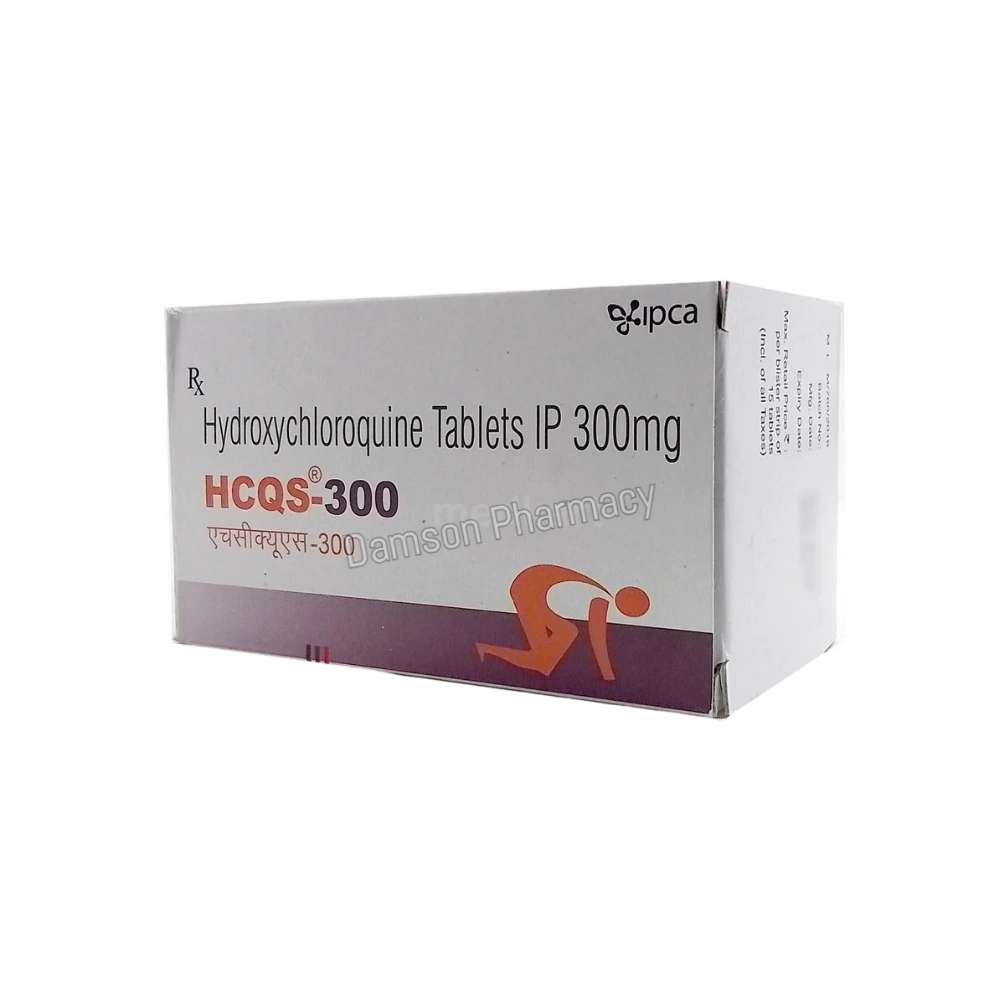
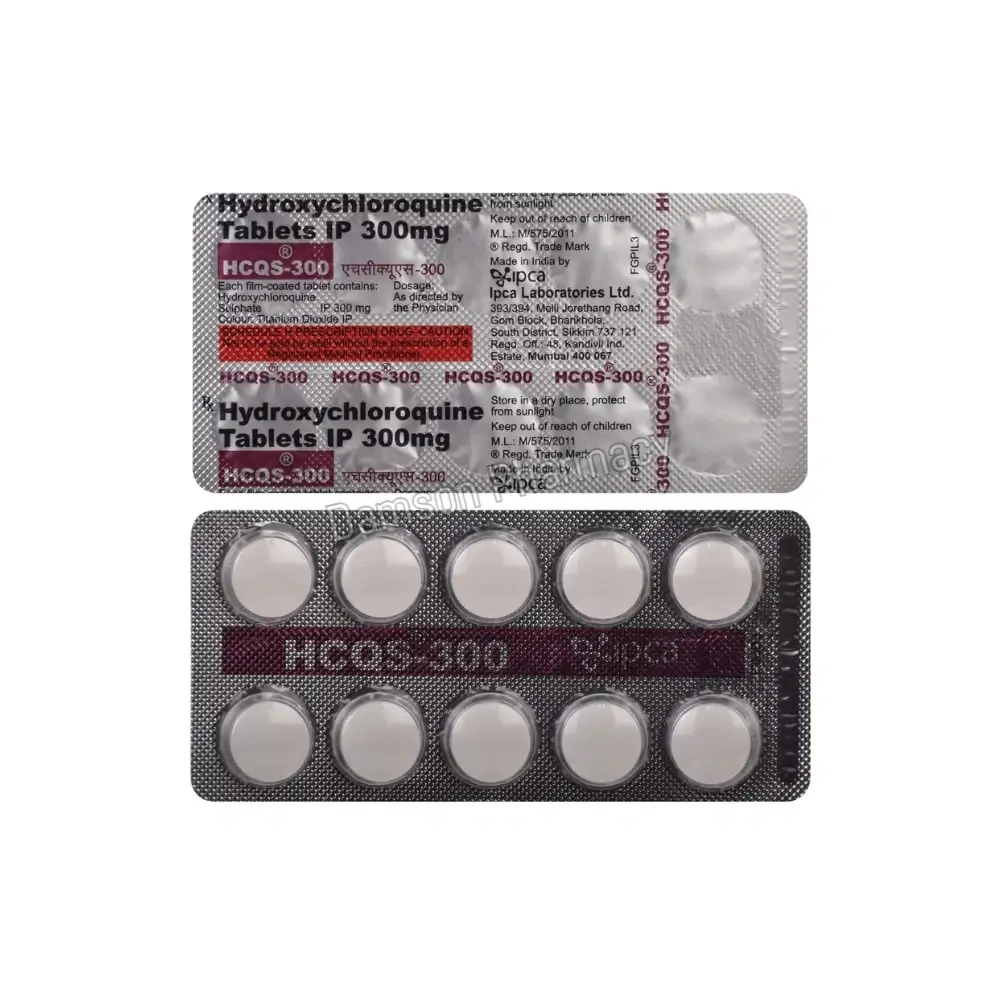
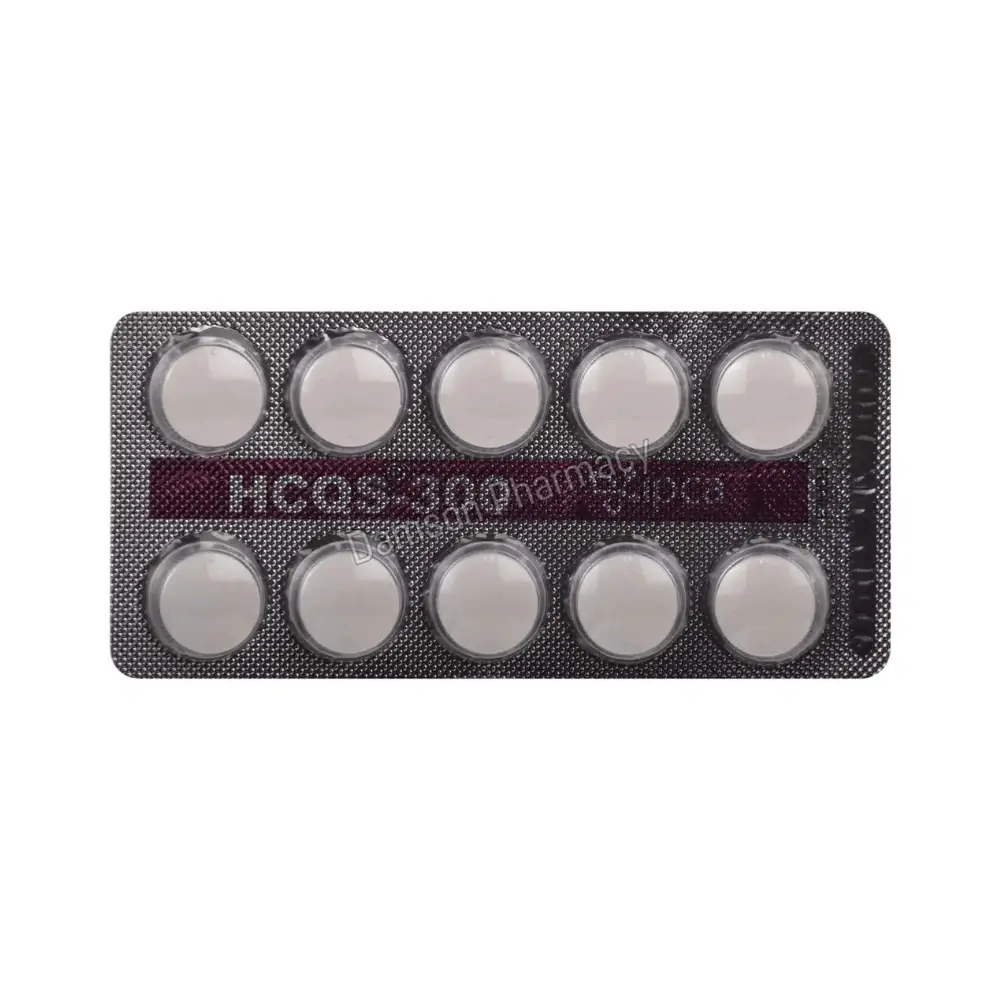
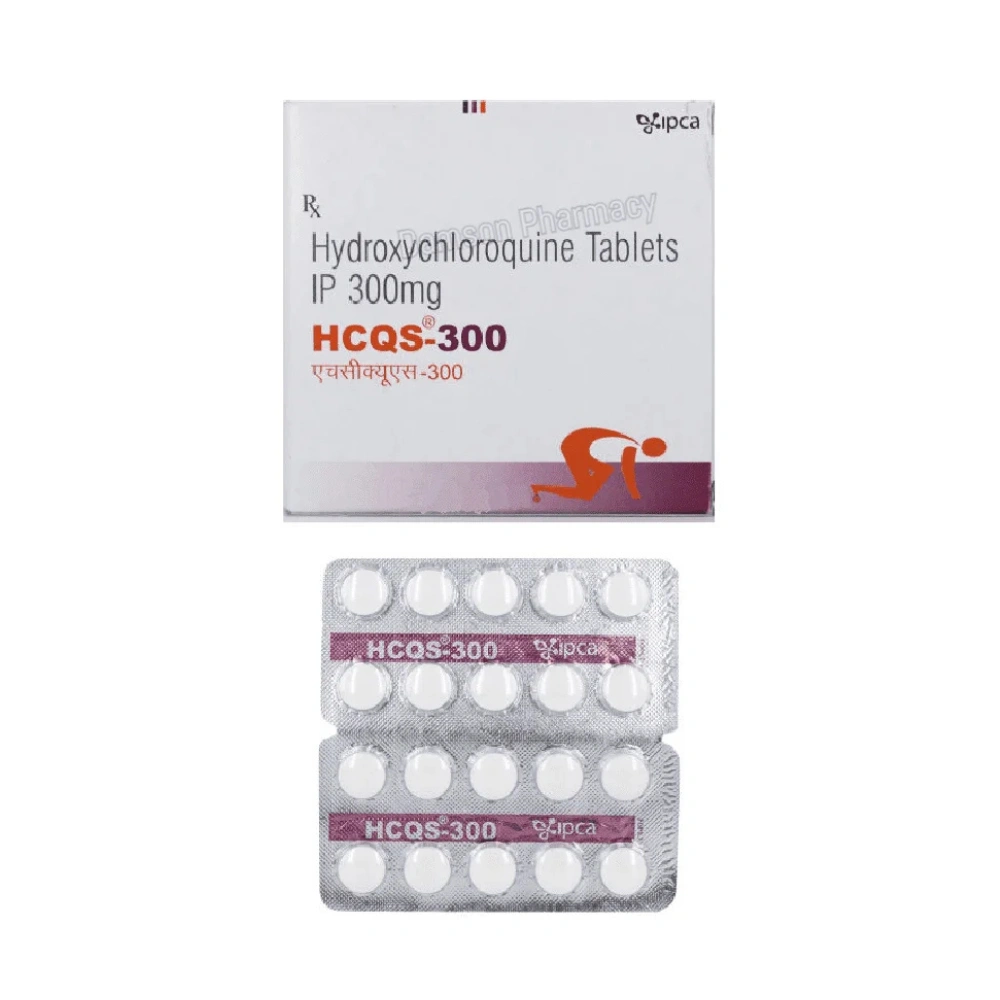
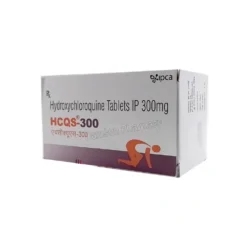
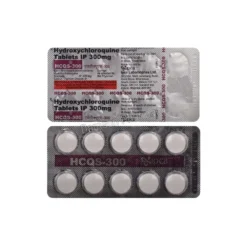
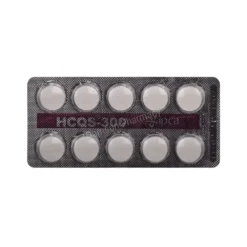
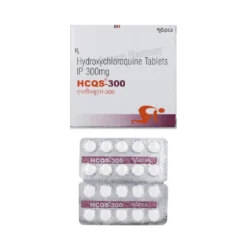
Nathan Diaz –
Definitely will do the trick
pesaliy –
Highly recommend, immediately I was comfortable with the transaction/order I was placing. High quality, quick shipping, and products exactly to what I wanted. Received very timely to the US. Will definitely return here for my next order.